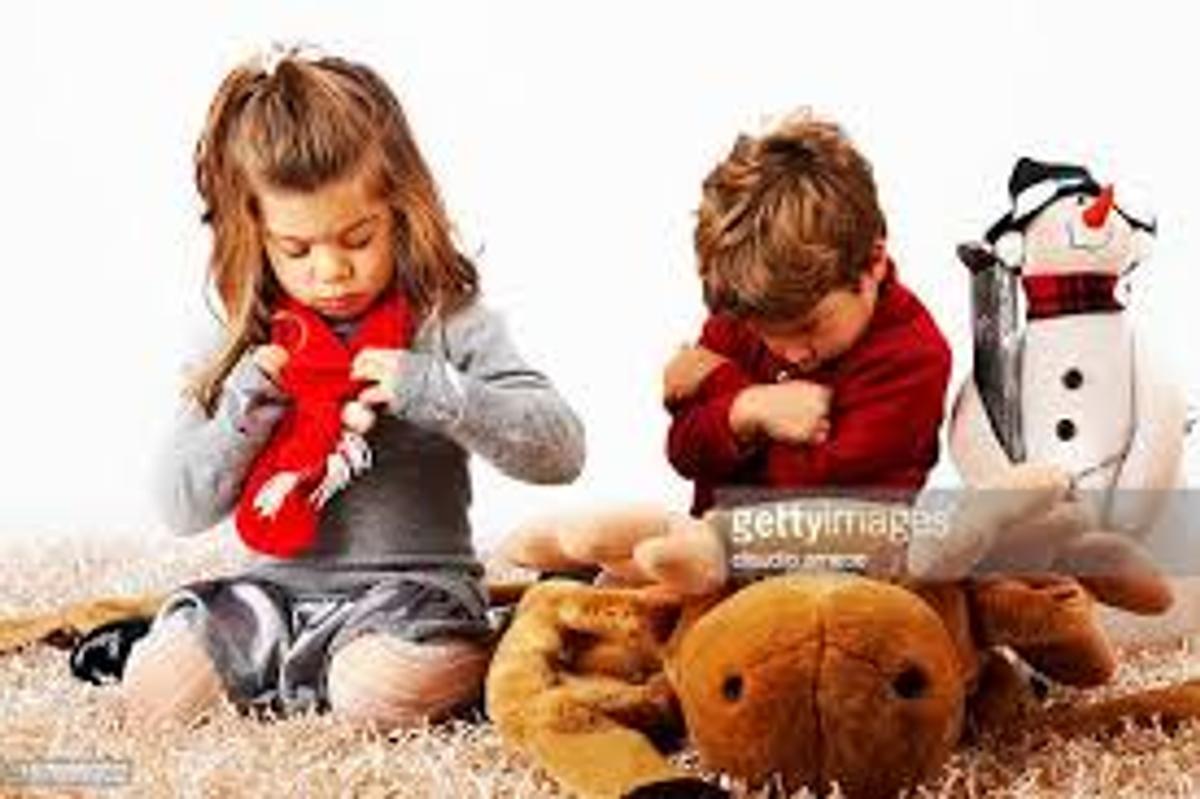Student Wellbeing & Learner Diversity

Better Not Pout, Better Not Cry?
Why holidays can bring out the worst in children —and how parents can try and keep the peace.
Around this time of year, every year, many children go bonkers. It’s not just their maniacal excitement for Christmas — although there’s that, too.
The holiday season is joyful, yes, but it’s also stressful for everyone, including and sometimes especially for children — but there are strategies parents can use to make the coming weeks easier.
The main reason is their routines get seriously upended. If you’re traveling over the holidays, children get plucked not only from their usual routines but also from their home. Even if you’re staying home, your house is rearranged, with a tree where the chair usually is and a chair where the toy box used to be and lots of fragile things to break everywhere. Weekends are taken over by party-going, baking, house-decorating, and parents have extra jobs to prepare for the holiday events.
Basically, this time of year, all of the things we put in place that help children feel safe and secure and know what to expect go out the window. To counter this problem, the psychologists have suggested that parents preserve at least a few routines over the holidays. Have some strategically set things that don’t change. If you snuggle in bed with your kids every morning, try to keep doing it. If you have a bedtime routine, follow it wherever you may be. And while it’s fine to let your children go to bed late on special days, try to maintain a normal sleep schedule the rest of the time. It can be appealing to let all the old rules go out the window — we want the holidays to feel special, and in pursuit of that we often eschew normalcy — but leaving routines behind is the big mistake parents make. Think about ways you can work routines into your holiday traditions, too—maybe every night before bed your children get to add a new ornament to the tree or sing a holiday carol together. The more ways you can incorporate consistency into the holiday season, the more grounded your children will feel.
In this same vein, if you have children who crave control and like to know what’s coming, it can help to go over the general plan of the day every morning during the weeks before Christmas. An Advent calendar could even help, providing a daily excuse to talk to your children about what events are happening which days. Even if you don’t know exactly how the day is going to go, provide anchors, like that you’re going to drive to Grandma’s after lunch and that you’re having dinner at a restaurant. Making a visual list of the tentative plan can be helpful for kids who absorb things visually better than verbally.
Another reason children act out around the holidays is because we have expectations for their behaviour that we haven’t communicated to them. We expect they won’t make fart jokes at Aunt Gertrude’s and then scold them when they do, but did we ever actually tell them that Aunt Gertrude doesn’t like fart jokes? The holidays are full of strange situations and rituals — we’re throwing children into situations that they might not have had a lot of practice for, so talk with your kids about them beforehand. If you’re going to a party and don’t want them playing upstairs, explain that before you arrive. And when they do meet or exceed your expectations, tell them that. Catch them being good and reward them. Label your praise so they know what they did that you appreciated, like “I really liked how nicely you played with your cousin even after he threw the candy cane at your head.”
All the excitement over gifts and traditions can also take an emotional toll on little bodies, causing them to misbehave or become clingy. Many children experience a kind of anticipatory anxiety before big events, in which they feel excited but also nervous about what to expect. (This is why so many children have tantrums at their own birthday parties — they’re overwhelmed by all the feelings.) Children may not be able to grasp when Christmas is coming, even if you tell them. The child who wakes up every few days to inquire, “So is today Christmas?” and then has a meltdown when told it’s not.
To help reduce this anxiety, lessen the Santa and present talk at home, because that can be too much for many children. Experts also caution against using Santa or the “Elf on the Shelf” as a form of blackmail, telling children that they’re being watched and won’t get gifts if they misbehave. That idea can be terrifying for children, because there isn’t a child in the world who doesn’t occasionally misbehave, and often this misbehaviour isn’t intentional but just a byproduct of having lots of feelings.
As parents, make yourself a calming mantra that you repeat to yourself throughout your day, like Let go of the things that don’t matter or I’ve done well and I don’t have to be perfect. And regularly remind yourself what the holidays are really about: not finding the perfect gift or making the perfect meal or trimming the perfect tree, but faith, family, love and children. Have a wonderful break!




